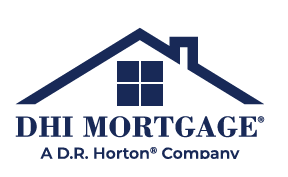Oregon Mortgage Bankers Association
Final Legislative Report
2025 Oregon Legislative Session
Prepared by: Markee and Associates
The 2025 legislature officially adjourned late on Friday, June 27th at about 11:15 PM with many fireworks and drama waiting for the waning hours of session to end. With the capitol building still under construction, access to the building can still be challenging and, with much of the building closed, the halls can be quite crowded. At this point, we are hearing the building construction may be largely completed by September, though delays during the process have been common so that date remains uncertain. As with the last long session, the assembly had new leadership, as Rep. Julie Fahey served her first term as Speaker of the House and Rep. Ben Bowman as House Majority Leader. Similarly, in the Senate, Senator Kayse Jama served his first term as Senate Majority Leader with Senate President Rob Wagner being the only member of Democrat leadership with experience as a presiding officer. As a recap, the current make-up of the legislature is controlled by the Democrats who hold supermajorities in both chambers with an 18-12 advantage in the Senate and 36-24 in the House. This is significant as it allows the majority to pass tax bills without any support from the minority party, though the close of session found such passage is perhaps easier said than done.
The session began with relative cooperation and bipartisanship. Most years specific policy priorities are communicated ahead of session with a general plan of attack on timing of passage. This year was somewhat different as priorities seemed more general in nature, such as addressing homelessness, making home ownership easier, dealing with corporate medical ownership structures, finding resources for wildfire mitigation, and the most talked about issue throughout session was putting together a transportation package.
SB 83 dealt the “wildfire map” and was a topic of conversation all session long. To summarize a long bill, SB 83 repeals the statewide wildfire hazard map and mandatory building code requirements that were established under SB 762 (2021). The bill responds to public concerns about overly broad, one-size-fits-all regulations by shifting authority back to local governments and property owners, allowing for more customized wildfire mitigation approaches based on local conditions. While removing the mandatory mapping and code enforcement, SB 83 preserves key wildfire risk reduction strategies, such as funding for defensible space, community preparedness grants, and voluntary safety programs. After passing the Senate 29-0, the bill was passed out of the House Policy Committee and sent to the Rules Committee to keep the bill in the process to avoid policy committee deadlines. The bill ended up becoming political with the Republicans trying several times to pull the bill from committee, with their motion being voted down largely along party lines. Finally, a deal was struck and the bill was allowed to come up for a vote and passed the House with just one no vote. SB 83 is expected to be signed by the Governor.
- A 37.5% increase in the gas tax (from $0.40 to $0.50 in 2026 and $0.55 in 2028)
- Automatic inflation-based increases for the gas tax
- Registration fee increases (up to 262% for some vehicles)
- A tripling of Oregon’s transit payroll tax (from 0.1% to 0.3%)
- A new “vehicle transfer tax” on car sales (2% on used cars over $10,000, 1% on new cars)
- An increase in the vehicle privilege tax (from 0.5% to 1.0%)
- Increases to many different state permits and fees (140%–500%)
- A new road usage charge for electric and high-mileage vehicles
- Increase in title, trailer, and RV fees, plus revenue from abandoned RV sales
While the legislature has completed its business for the time being, there will be more work to be done in the months ahead as work plans are released and members take some time off following session. For the rest of this year, the Capitol will close for two months in hopes of completing the construction on the building. Interim legislative days are scheduled for September 29th-30th, November 17-19th and January 13th-15th prior to session next year. In the upcoming 2026 session, legislators will be limited to only introducing two measures each, while interim committees will be limited to three measures. For bills to be introduced, the concepts must be submitted to legislative council by November 21st. If there is a desire to have something introduced, we will want to talk about it relatively soon so we can make sure we meet the deadlines and find legislators with legislation available before they are already committed to something else. The 2026 session will begin on Monday, February 2nd and will run through the early part of March (35 days). On the following pages are a handful of the more pertinent bills we worked on your behalf.
HB 2008 was the main bill on privacy issues this session. Discussions on how to deal with data privacy were ambitiously looking to deal with a wider scope of issues than what was considered a couple years back when, then Attorney General Ellen Rosenblum, held a multi-year stakeholder process to discuss data privacy. Some initial ideas, in addition to the banning of selling personal data for anyone under 16, included requiring companies to explain what data they collect, why they collect it, with whom they share it, and included an opt out to revoke consent. After a robust, multi-week stakeholder process and many meetings with legislators and members of the House Committee on Commerce and Consumer Protection, the bill was narrowed to the prohibition of selling geolocation information on minors under the age of 16 and prohibiting a controller from selling personal data that accurately identifies within a radius of 1,750 feet a consumer's present or past location, or the present or past location of a device that links or is linkable to the consumer by means of technology. The definitions used in the bill were narrowed in the amendments and industries in general were neutral on the legislation. Data privacy will be an ongoing issue during the interim, as the Rep Chotzen (the bill sponsor) seems very interested in doing more in this area.
HB 2951/2952 were bills looking to modernize the notary process by creating an online system to record notarial actions. While the bill in theory was good, we had concerns about Oregon being one state on its own trying to do this and felt it would not work without it being like the NMLS. We also had some concerns about potentially cutting off all electronic and paper notaries outside the state. Like 2951, 2952 also dealt with notaries. HB 2952 would have added new requirements to notarial certificates to include the type and length of the document and would have updated how the records are kept by country clerks. There was supposed to be more conversations during session to see if there was some type of agreement to be had to pass one or both of these bills, but those talks did not come together. There may be some meetings during the interim to talk about these concepts ahead of the short session next year. If those meetings do happen, we will be sure to be part of them and will keep you all informed.
HB 3865 deals with telephone solicitation and, as introduced, would have drastically restricted a business’s ability to even talk to current customers. Initially the bill tried to just include text messages within our telephone solicitation statutes, but in doing so created a long list of other issues for businesses in general in their ability to talk to their customers. We spent a good deal of time working with the Senate Judiciary Chair and the sponsor of the bill to try and work out these types of issues. Please take some time to look over the legislation but we were able to get an existing business relationship exemption into the bill, which should solve most issues, and also made sure that if someone reaches out to you, you should be able to respond. The bill ultimately passed and goes into effect on January 1, 2026.
SB 534 would have put an end to reverse mortgages in Oregon. We opposed the bill, along with a very small coalition we helped put together. Getting a coalition together to fight the bill was not as easy as years past as most traditional banks/credit unions no longer offer the products. For a while it looked like the legislation would be amended to only effect equity sharing agreements. These amendments never came to be, and the bill died, but will inevitably be returning in future sessions.
SB 605 was introduced by Sen Campos at the request of the Oregon Consumer Justice dealing with not allowing credit reporting on medical debt. The bill as initially introduced attempted to mirror the federal rules but was written overly broad and needed lots work. Items that were discussed included: making sure that general credit cards were not part of the bill, products like HELOCs were not part of the bill, nonmedically necessary procedures, and there was a great deal of time spent on the words “specifically” vs “solely”. The Receivables Management Association pushed extremely hard to use the word “solely”, with the intent to exclude from the bill a credit card that is marketed for medical debt that could also be used for nonmedical items at certain stores. In the end, the bill was amended, and the language was cleaned up considerably. The word solely was not used, with the intent that any credit card marketed for medical purposes would be covered by the legislation. However, it is unknown of the effects of the word “specifically” and I believe we won't know the meaning of that word in the context of this legislation until the courts rule on it. While we opposed the legislation, we were mostly concerned about making sure a HELOC, or something similar, was not caught up in the bill if a portion was used for medical purposes. All of these types of issues were cleaned up in the bill. The bill goes into effect on January 1, 2026.



